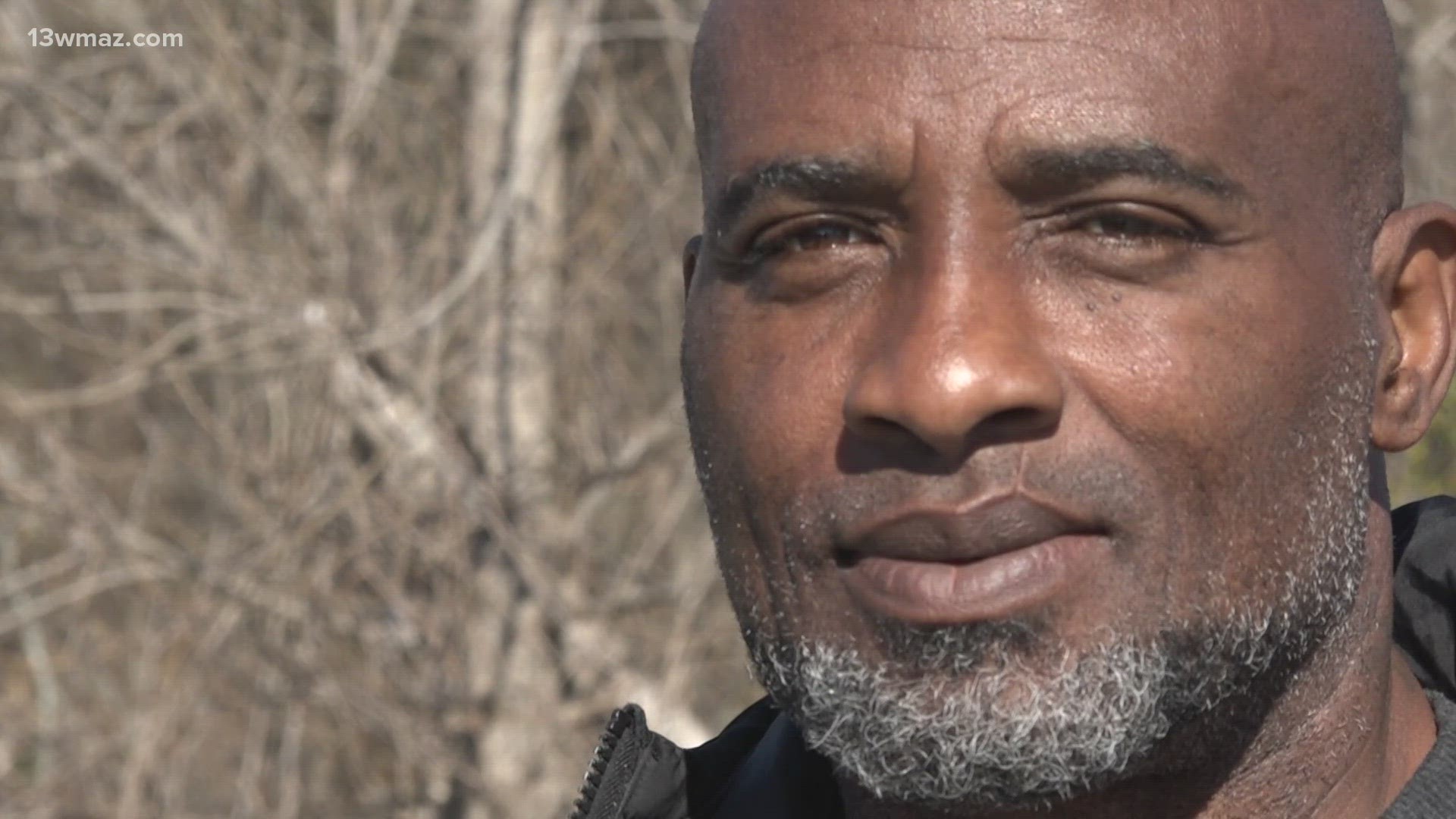MACON, Ga. — Every two years on a singular day in January, United Way of Central Georgia and volunteers ask the question: "Where were you sleeping the night of Jan. 22?"
Unsheltered, homeless people in Bibb County were questioned about if they slept in a tent, on the street or in a van.
Jake Hall serves as the executive director for United to End Homelessness. With improvements to their Point-In-Time (PIT) survey — which tracks Macon's homeless population — they found more people who weren't living in a secure home.
United to End Homelessness is part of the United Way of Central Georgia. According to their website, the non-profit saw that homelessness was a problem, and there weren't enough solutions to alleviate the number of homeless people in the community.
Hall says raw data showed there were more than 400 people who were homeless. Those numbers are reported to the Department of Housing and Urban Development (HUD). The federal department has mandated these numbers be reported each year.
Once the numbers are calculated, this determines how much funding each county gets to help address their homeless problem.
But Hall says homelessness isn't a one-size-fits-all definition.
"Some people are experiencing chronic homelessness, meaning more than three episodes of homelessness in five years. Some people have been on the streets for many years and their pathway back to stability looks very different than a family who may be experiencing homelessness for the very first time," Hall says.
Bibb County is rolled into a statewide funding group called Continuums of Care (CoC): the Balance of State CoC.
According to HUD funding CoC grants, the statewide funding category received $24,124,030 in the 2023 fiscal year. That is divided into the 152 counties within Georgia.
Only two organizations in Central Georgia received funding: the Community Service Board of Middle Georgia (CSB) and River Edge Behavioral Health Center. River Edge received about $2.1 million and CSB got $48,571.
The funding is geared towards helping get people off the street.
Richard Westmoreland wasn't always homeless. He ran into some trouble when he was 17 years old. Now almost 60, he says being homeless comes with constant rejection.
"Every time I ask for help, I get turned out, so I just move around and try to stay warm as much as I possibly can," Westmoreland said.
Westmoreland says his home is on the streets of Macon.
He says he's been to Daybreak, the Brookdale Resource Center and the churches. He says he has been turned away from the shelters. He says he has been denied help on different occasions trying to get help with paying for an apartment.
Westmoreland told 13WMAZ he wants to work but after being in three car accidents, he can't. Staying positive about his situation is why he hasn't given up on living.
"I have no family — I got God that's it. That's all I need," Westmoreland said.
At the Spring Street exit in Macon on I-16 East, several people stood at the stop light holding signs asking for help. Westmoreland doesn't panhandle but knows the people who do.
He says they were younger and can work, but "they've just given up, they have nowhere else to turn," he said, implying if they could work, they should so they can make a better life for themselves.
"I'm the type if I believe if you're a young person that have no health problem, you should be out finding a job trying to work. Other than that you got to have compassion. If you put people out at least let it be warm or something," Westmoreland said.
While data for the number of homeless people is still being evaluated, Hall says United to End Homelessness will continue to work towards making sure homeless people will soon have a place to call home.
"Making sure that each of the pathways of homelessness have the right kind of off-ramp from homeless is the work that's ahead," Hall said.

